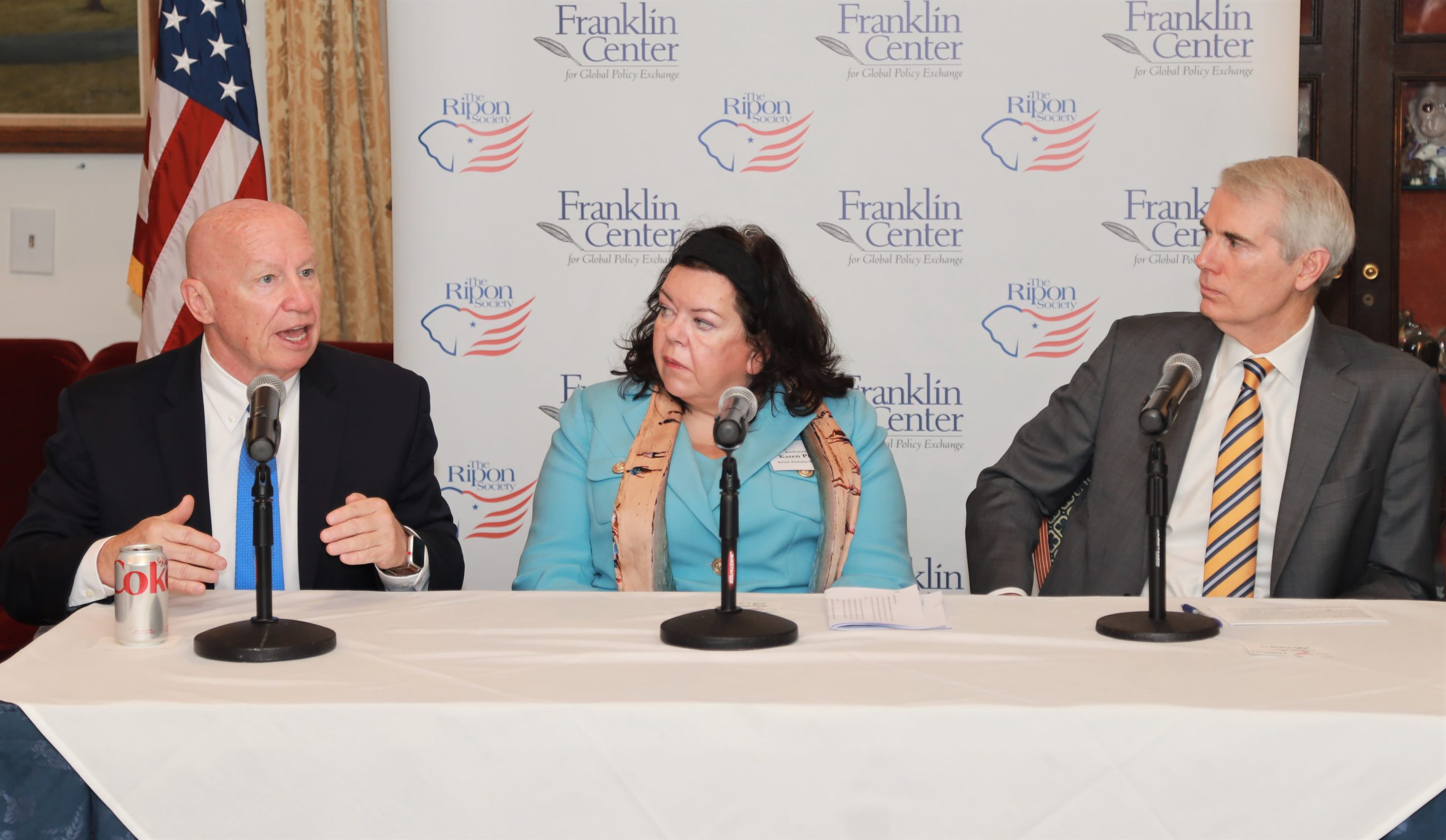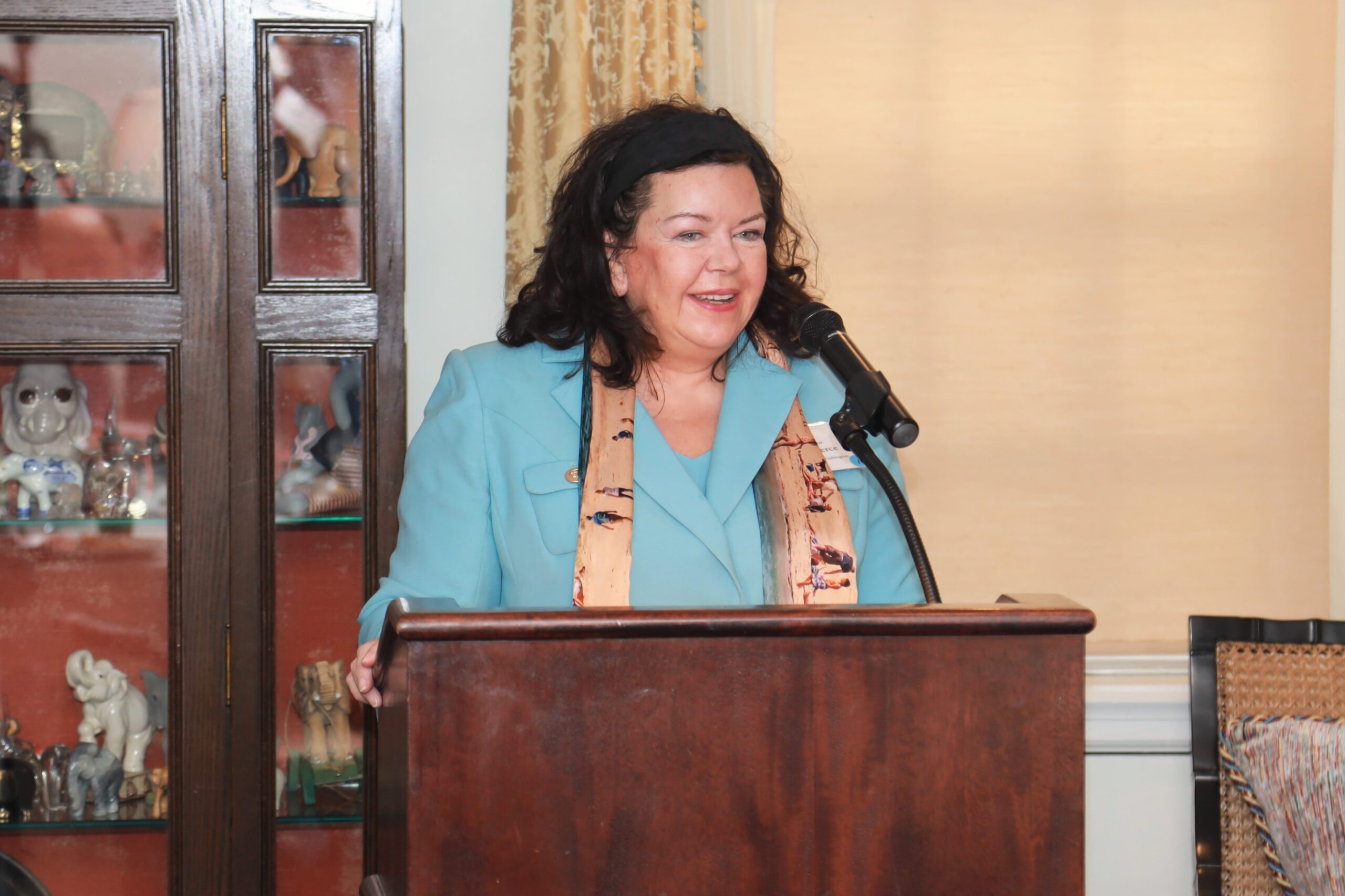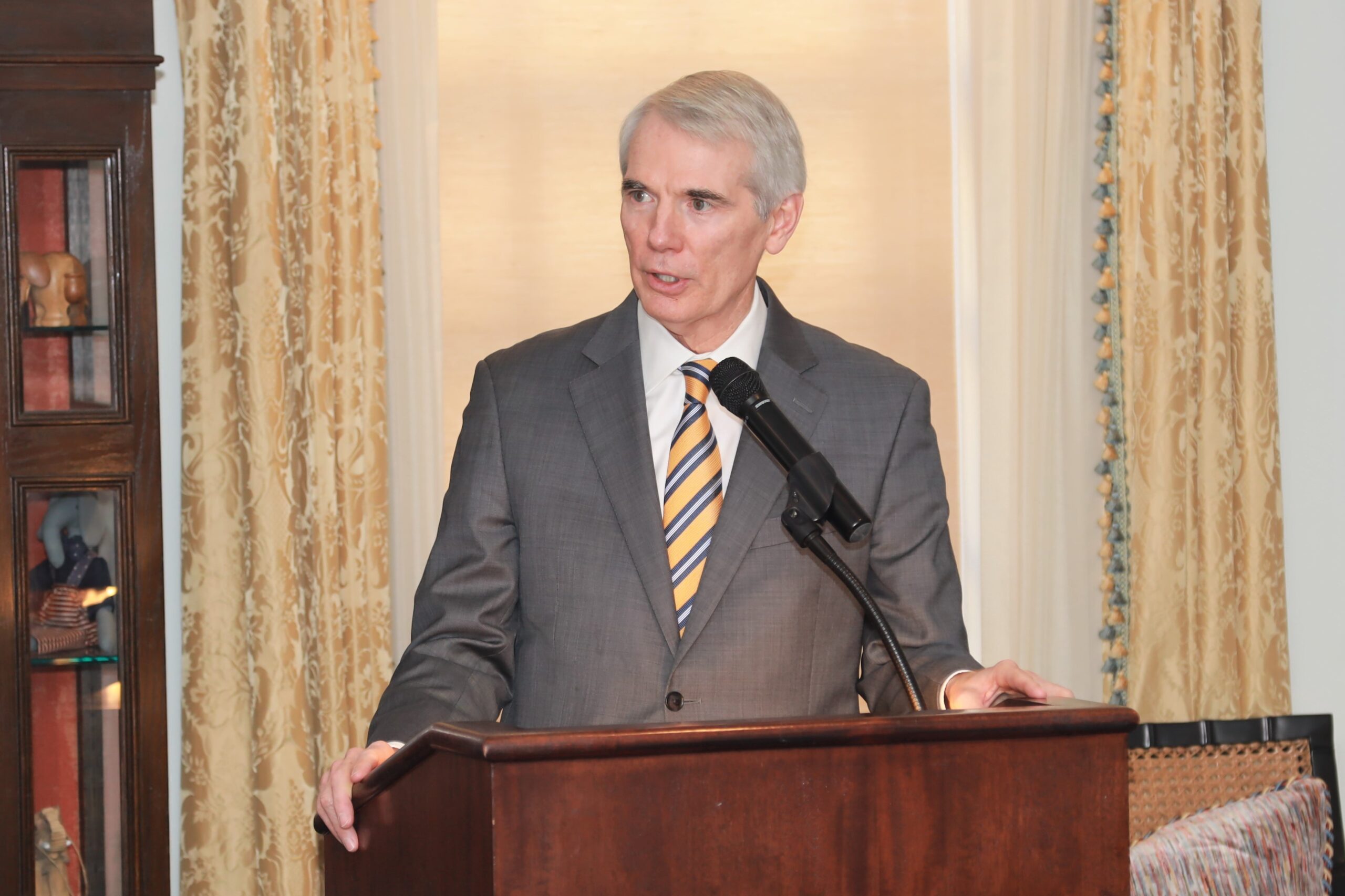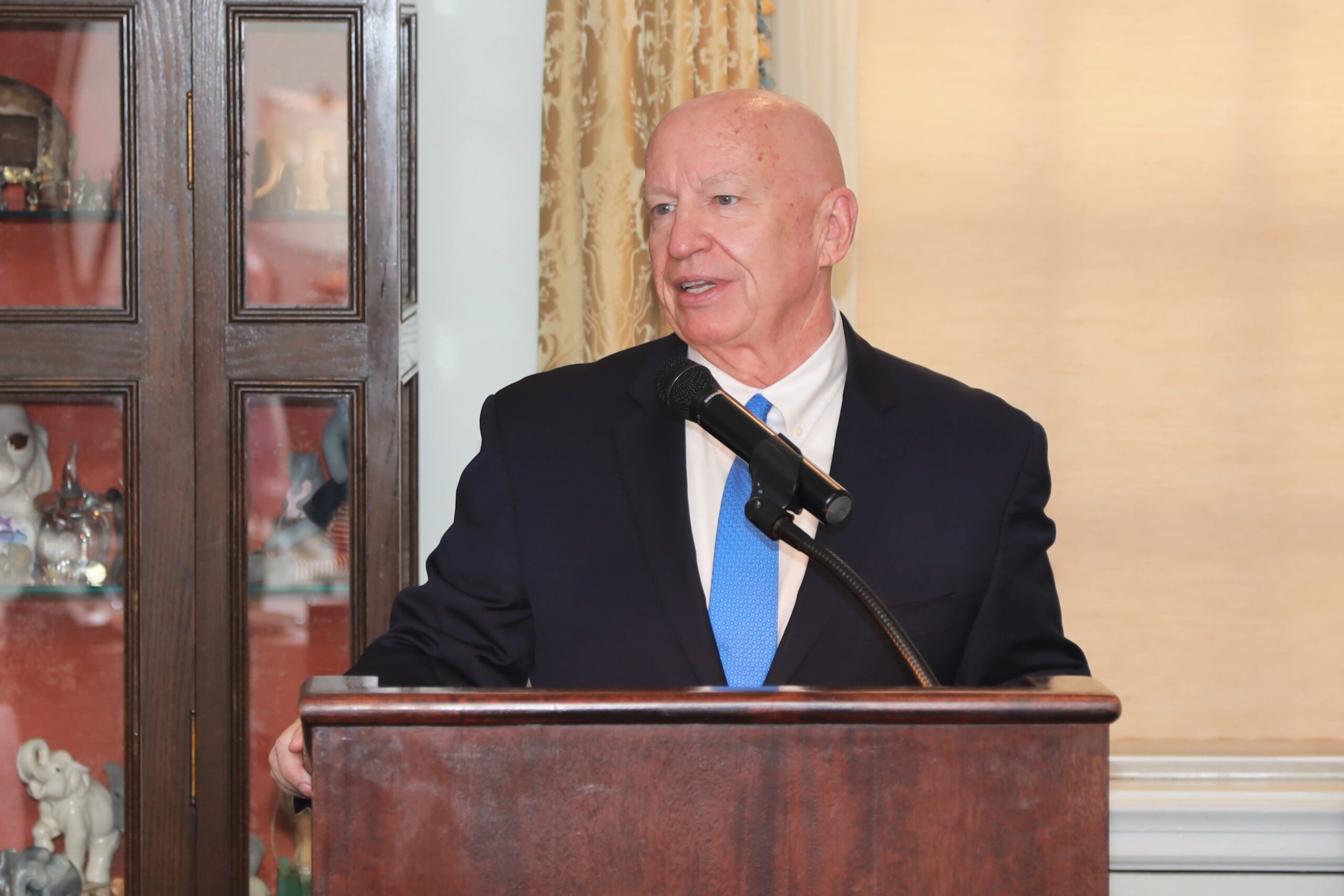
Pierce, Portman, and Brady Underscore the Need for a New Free Trade Agreement Between the U.S. & U.K.
WASHINGTON, DC – This past Thursday, The Ripon Society and Franklin Center for Global Policy Exchange held a breakfast discussion with three leaders who are working to facilitate a new free trade agreement between the United States and the United Kingdom.
Those leaders were British Ambassador to the United States Karen Pierce, DCMG; U.S. Senator Rob Portman (R-OH); and U.S. Rep. Kevin Brady (TX-8). Ambassador Pierce, who became the first female British Ambassador to the U.S. this February, began the discussion by outlining the four “planks” on which the U.S.-U.K. relationship is based.
“One is a shared endeavor in war and peace,” Ambassador Pierce stated. “I have had the honor to serve alongside the American military and civilians working in the Balkans, working in Afghanistan… We’re what’s called the ‘day one, night one’ ally, as Mrs. Thatcher said. We will be with you wherever you go.
“The second plank is our common purpose to deal with the new challenges of the 21st century. There’s a bigger competition among the great powers of the world to set the rules of international affairs. Things we once took for granted, like trade and free trade, those very concepts are under attack.
“The next thing I’d highlight are the people-to-people links. These have been so important throughout our shared history. I think it’s probably true to say that, compared with when I first came to America twenty-five years ago with George H. W. Bush and then Bill Clinton, there were more people in America, proportionately, who had ties with Europe, ties with the U.K. specifically. I think that’s attenuating as demographics change. My job is to keep those links strong and to interest the next generation of Brits and Americans in each other and what we can do together.

“The last plank is, of course, trade. We very much want to deepen our trading relationship and our investment relationship with the United States. We are among each other’s largest investors. Every day, 1.7 million Brits go to work in the U.K. for an American company, and 1.3 million Americans go to work in the United States for a British company. The trading of goods and services is well over a quarter of a trillion dollars. And if you add investment into that, it all goes over a trillion dollars.”
Portman, who previously served as the U.S. Trade Representative (USTR) under President George W. Bush, agreed with the Ambassador that the U.S. and U.K. are undoubtedly tied together economically, and that is why a new trade agreement between the two nations is paramount.
“We believe in trade, and we think that free trade agreements in particular have been quite good for America,” Portman said, referring to the position that both he and his colleague from the House, Congressman Brady, hold. “We send about half of our exports, after all, to about 10% of the world. And those are countries with which we have trade agreements. And I think Kevin shares my frustration that this Administration isn’t moving forward with the U.K.”

“I worry about some of the great professionals there at USTR and what they’re up to because there’s not much negotiating going on. I hope that the Administration takes a little different tack over time on this.”
According to Portman, the U.K. has been, and will continue to be, an indispensable ally to the United States, which is why talks between our two nations should be a top priority.
“There is no country with whom we have stronger ties,” the veteran lawmaker declared. “They were with us in Iraq. They were with us in Afghanistan. You may have seen just in the last few days that they made a commitment to send special forces to Ukraine at a time when Russia is dangerously building up a massive military presence on the Eastern border. The U.K. steps up. I just think the Administration ought to think about that as they’re making their decisions on whether to go forward with trade agreements and specifically what countries to prioritize.”
Brady struck a similar note, explaining that modernizing our trade agreements is crucial for remaining competitive in the global market.
“America needs to be leading on trade,” he stated, “because right now the rest of the world, our competitors, are divvying up the customers around this world, leaving our workers, our farmers, our tech companies, and our service providers on the sidelines. It is a crucial mistake in so many ways. The first step we need to take is end this trade moratorium on market access. It’s real. I understand every administration takes a little while to get their feet underneath them on trade. That’s fair enough, but now is the time to give us a true trade agenda that goes beyond. I understand the worker-centric, the climate-centric, the enforcement-centric agenda, but that’s not enough. We will make only marginal progress following that. We need to be out there shaping the rules, opening the markets, and leveling the playing field — there is no better place to start than the U.K.”

“As I always say, today it seems like, especially beyond the borders, that many of our trading relationships are like trying to plug a U.S. plug into a European socket. It’s designed not to connect. 21st century trade agreements do the opposite. They tear down those barriers and have connected those new markets and new products and services in a big way.
“I think we need to end this trade war with China, and we need to begin our negotiations with the U.K. I still think there are great opportunities with the EU and with a second, more comprehensive agreement with Japan. We need to be in the Asia-Pacific in a big way. I think there’s a lot of bipartisan goodwill built up and momentum from USMCA, let’s use it.”
Following their opening remarks, the three leaders were asked a number of questions. One question focused on the Good Friday Agreement, a treaty which, among other things, eliminated a hard border between Northern Ireland and the Republic of Ireland in 1999. More specifically, the panelists were asked how this agreement is impacting trade and the transfer of goods to the island now that the U.K. has left the EU and its regulatory umbrella. Ambassador Pierce addressed the question.
“We are still talking to the European Union about the Northern Ireland protocol,” Ambassador Piece said. “Those talks were going well this week, and they’ll continue next week. What we want to do is renegotiate the protocol. The protocol was a special part, if you like Brexit, it was designed to bring into practice in trade exactly the Good Friday Agreement, because it was exactly designed not to put a hard border between Northern Ireland and Ireland.
“The Prime Minister, if he were here, would be happy to repeat what he told the Senate chairs and House chairs when he visited in September. We stand by the Good Friday Agreement; we will not put a hard border on the island of Ireland. But there are complications because of the EU single market and the EU wants assurances, reasonably enough, that goods going into a part of the EU from the United Kingdom will not contaminate the single market or introduce bad elements into it. We believe we can do that. We believe we can find those assurances through other ways than the disproportionate checks that the EU is currently carrying out. So if you think of the EU and you think of all of its external borders, so that’s its external border to the east of Europe, it’s external border to the south of Europe, and then you come up Highland and the coast of the Great Britain mainland, 20% of all total checks that the EU are doing are carried out in respect of Northern Ireland.
“So that’s massively disproportionate. It’s led to shortages on the shelves of Northern Ireland. For example, Jewish communities can’t get kosher food. It’s led to critical shortages of medicines and in turn those things have caused a breakdown in trust between the communities, which threatens the balance that’s in the Good Friday Agreement. It’s not just a trading issue, as important as that is. It’s going to the heart of the balance of the communities in Northern Ireland. Say the British government would like to have a negotiated solution with the European Union, but if we can’t get a negotiated solution that protects these very important things, then the government will consider using what’s called Article 16. Article 16 is a safeguarding measure, it’s within the Northern Ireland protocol, so it doesn’t rip apart the protocol, and it certainly doesn’t touch the Good Friday Agreement.”
Ambassador Pierce continued.
“It would enable us to introduce specific protections, let’s say for pharmaceuticals, and then we would be committed to go into an ongoing dispute resolution with the European Union until the dispute was resolved. So we believe it’s a limited and proportionate way of dealing with the very real problem. If we do nothing, then not only will the people of Northern Ireland not get their goods and medicines. One community in Northern Ireland will be increasingly alienated. And we believe that that is the bigger threat to the Good Friday Agreement. We would simply encourage our EU friends to be pragmatic. We do believe this can be sorted out.”
Regarding the prospect of negotiating a trade deal between the U.S. and U.K, Senator Portman added that fears of compromising the Good Friday Agreement should not stand in the way.
“I have heard,” he stated, “particularly from the Speaker of the House and others, that we have trouble negotiating a trade agreement because we don’t want to violate the Good Friday Agreement. I don’t think that’s a real concern, to be honest. I think it’s something people are putting up as an objection that’s not real.
“I’ve heard concerns that we can’t do an agreement because it would necessitate a hard border between Northern Ireland and the Republic of Ireland. That’s just not true. And you know, right now there is a border — it’s in the Irish Sea. It’s not easy. There’s some complications to it, but we can work some of those things out, including the concept of trusted importers and exporters who could have special privileges.”
“The complexity of custom requirements is going to be there, but we can work that out. That’s not a reason not to do an agreement. Think about whether that’s really a legitimate reason or a reason some people are using to block it for other purposes. I would quote Prime Minister Winston Churchill, who once said, ‘A pessimist sees the difficulty in every opportunity. An optimist sees the opportunity in every difficulty.’ And this is an opportunity.”
To view the remarks of Pierce, Portman, and Brady from this past Thursday, please click on the link below:
The Ripon Society is a public policy organization that was founded in 1962 and takes its name from the town where the Republican Party was born in 1854 – Ripon, Wisconsin. One of the main goals of The Ripon Society is to promote the ideas and principles that have made America great and contributed to the GOP’s success. These ideas include keeping our nation secure, keeping taxes low and having a federal government that is smaller, smarter and more accountable to the people.



